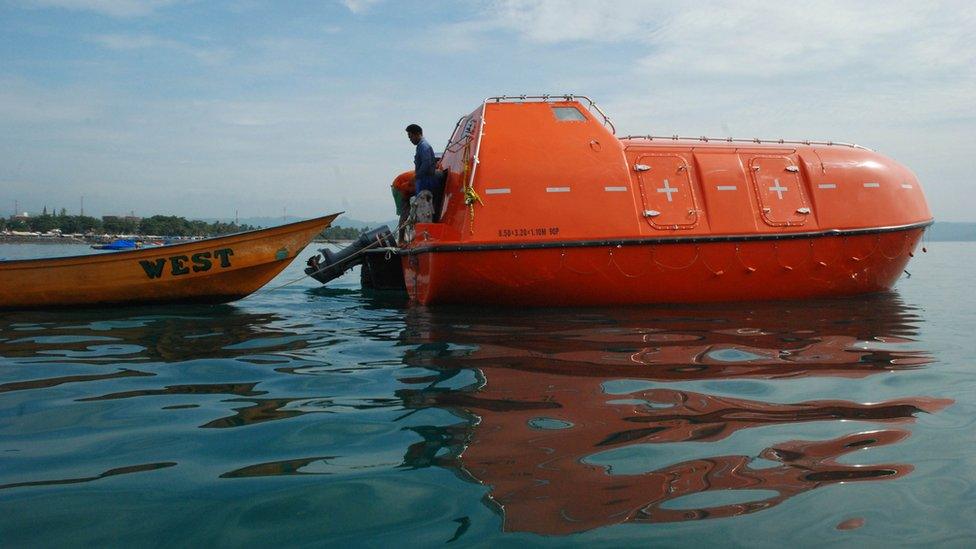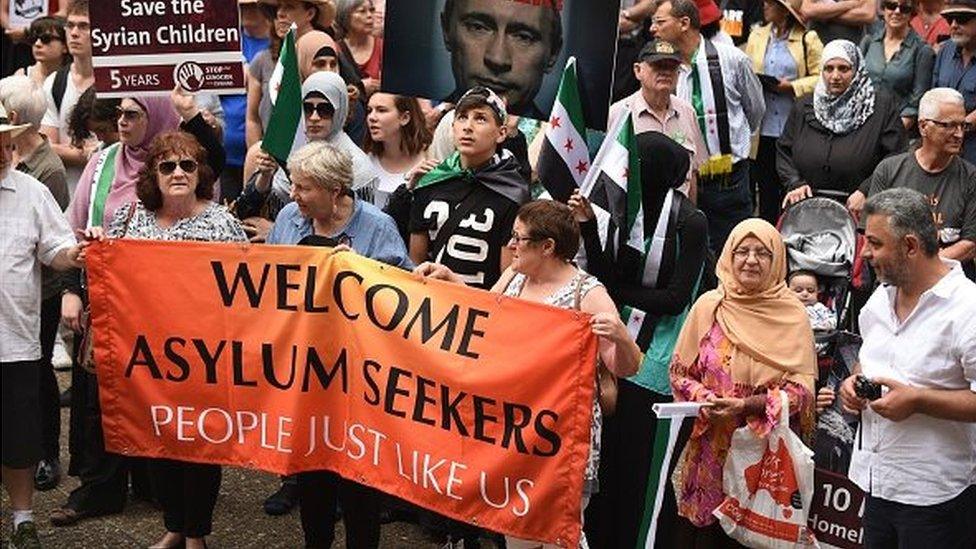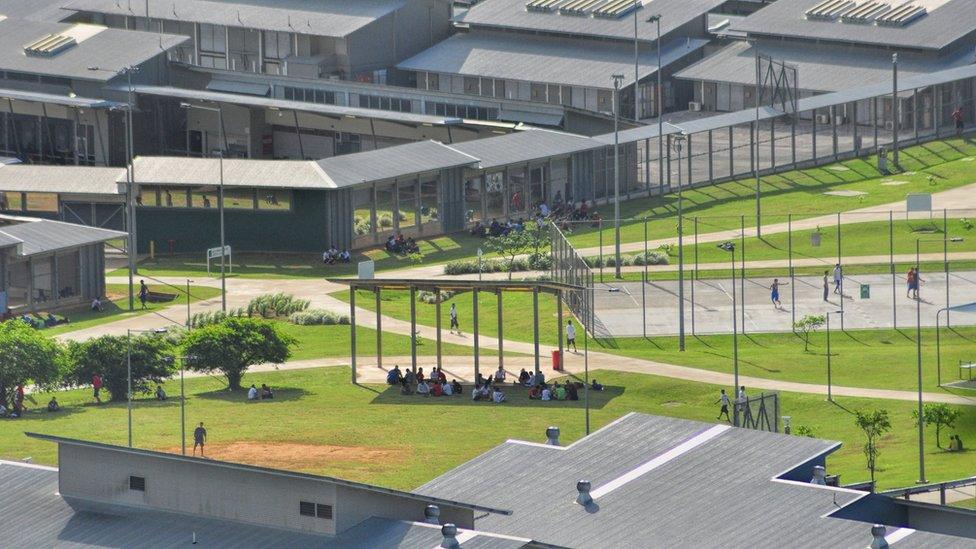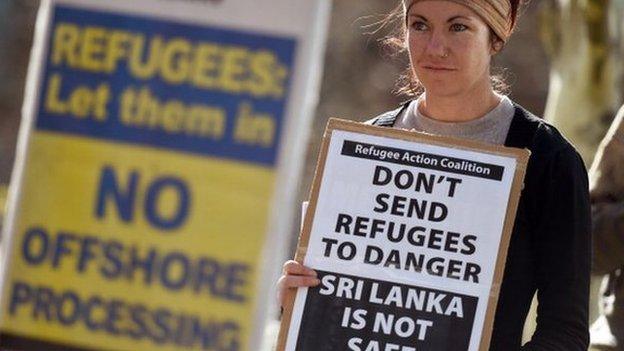Australia asylum seeker rules criticised at UN rights council
- Published

Asylum seekers have been sent back in lifeboats
Several countries have used a United Nations forum to criticise Australia's asylum seeker policies.
The US, Britain and others said Australia should stop turning back migrant boats and using offshore detention centres.
The UN Human Rights Council conducts a review of every country's human rights record once every four years.
The criticism comes amid after the death of an asylum seeker who tried to escape.
Australia asylum: Why is it controversial?
More than 100 country representatives were critical of Australia's policies during the review including Sweden, Norway, Canada, Fiji, France, Germany and Switzerland.
"We remain concerned about Australia's protection of the rights of migrants, especially of women and children at offshore facilities," Turkey's delegate told the review, according to media reports.

Although some support accepting asylum seekers, polls show a significant number of Australians favour a tough stance
Australian officials, who were given opportunities to respond, argued that the country's controversial polices save lives by discouraging dangerous ocean voyages, and allow it to resettle more refugees.
"The ensuring substantial and sustained reduction in maritime ventures as a result of Australia's managed approach to migration has resulted in Australia being able to resettle more refugees for our humanitarian programs," said Steve McGlynn, according to the ABC.
Several countries also urged Australia to legalise gay marriage, with Ireland, Iceland and the Netherlands reportedly saying the country had fallen behind other western nations by failing to recognise marriage equality.
"Revise the Marriage Act of 1961 in a way that ensures full equality with respect to the civil institution of marriage," the Netherlands reportedly noted., external
"As a strong advocate of marriage equality and equal rights for all, The Netherlands notes that Australia's Marriage Act de facto discriminates against LGBTI people".
Turn-backs under fire
Australia began turning around migrant boats trying to reach its shores after the election of the current Liberal-National coalition government in 2013.
Intercepted asylum seekers are sent to Christmas Island - an Australian territory in the Indian ocean, as well as Manus Island in Papua New Guinea and Nauru in the South Pacific.
Iran and North Korea also reportedly voiced concern, according to Australia's Fairfax Media.
Iran expressed its "deep concern about the mandatory immigration detention regime", according to the report., external
Sweden's delegate told the UN session Australia was the only country that used offshore processing and mandatory detention of irregular immigrants, according to ABC., external
Recently Australia announced a bid for a seat on the Human Rights Council for a three-year term starting in 2018.

So why does Australia have tough asylum policies?
Domestically, asylum is a hot political issue. Polls have shown that a significant number of Australians approve of taking a tougher stance.
The two biggest rival political groupings adopted tough policies ahead of the September 2013 polls. The Liberal-National coalition, which won, had campaigned in part on a "stop the boats" platform.
The government says the journey the asylum seekers make is dangerous and controlled by criminal gangs, and they have a duty to stop it.
However, critics say opposition to asylum is often racially motivated and is damaging Australia's reputation.
Australia granted close to 13,800 refugee visas between 2013 and 2014, external. It granted about 20,000 visas between 2012 and 2013, external.

- Published9 November 2015

- Published31 October 2017
